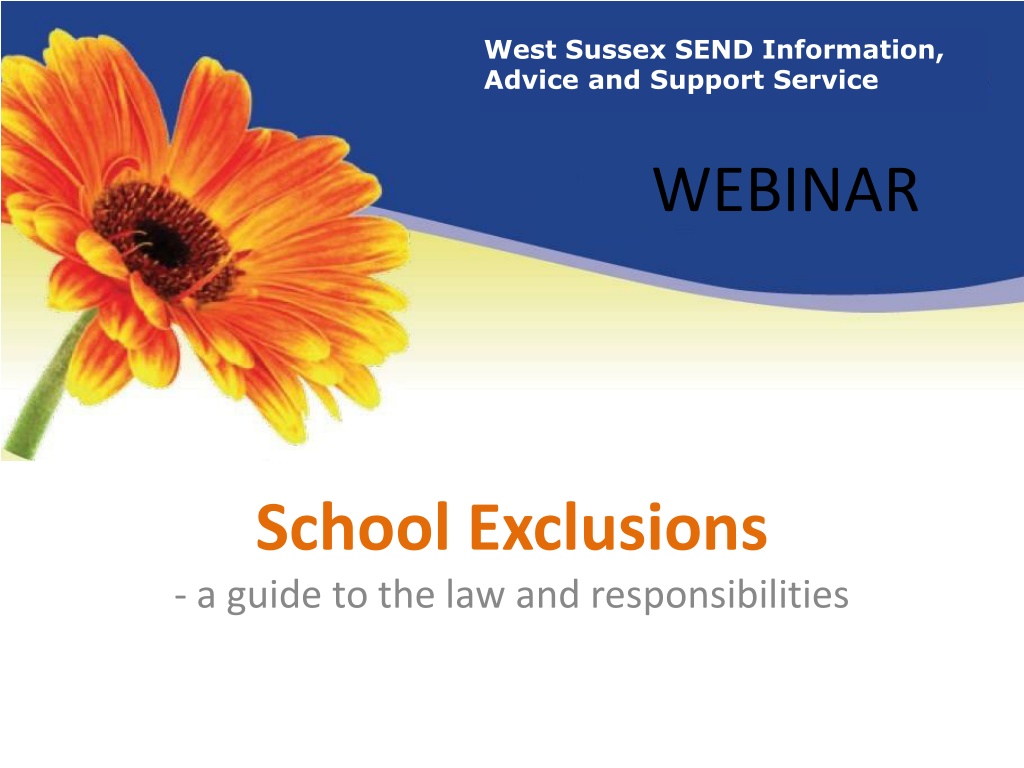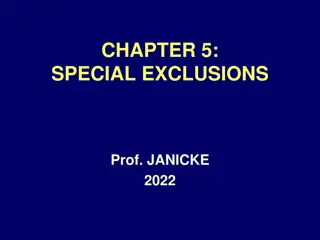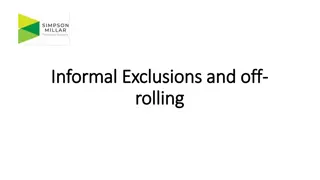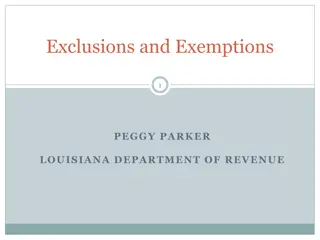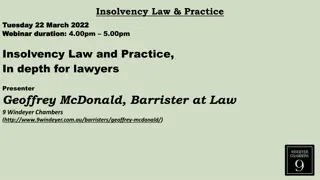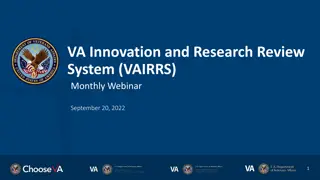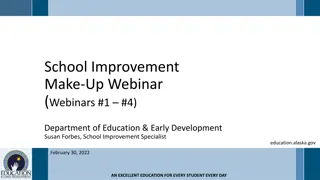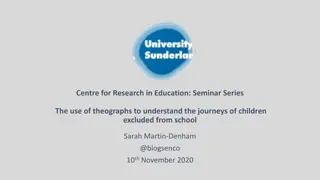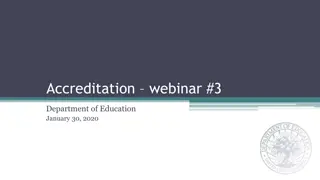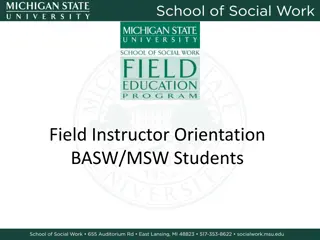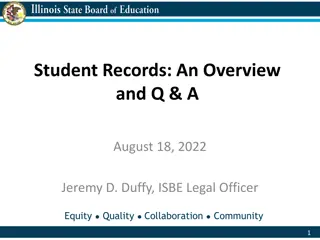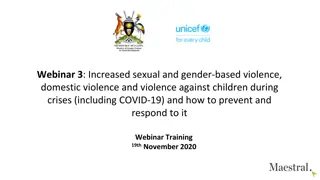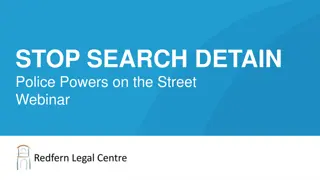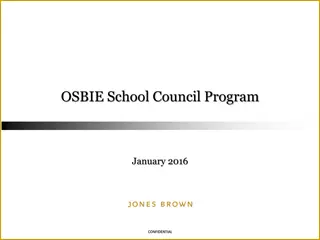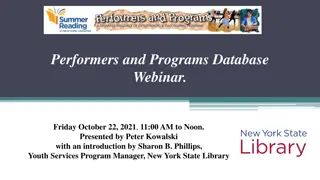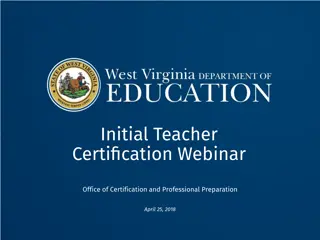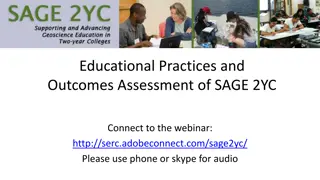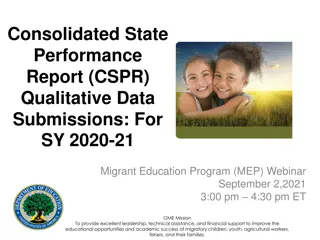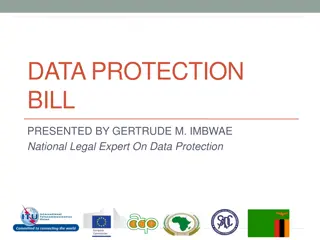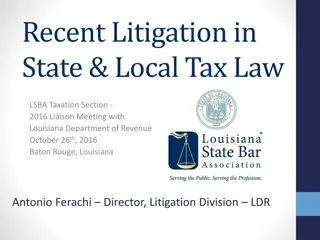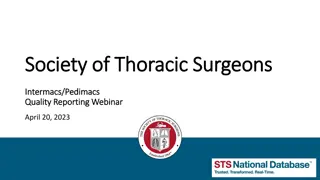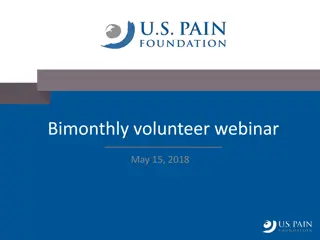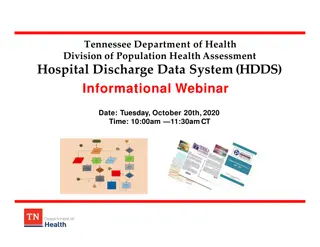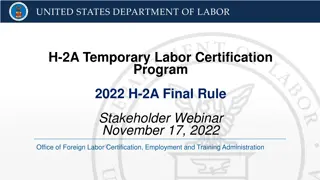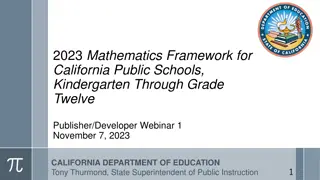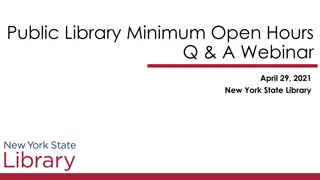Understanding School Exclusions: Law and Responsibilities Webinar
Explore the legal aspects and responsibilities surrounding school exclusions in this informative webinar hosted by the West Sussex SEND Information, Advice, and Support Service. Featuring expert presenters, the session covers the Education Act, statutory guidance, grounds for exclusion, permanent exclusions criteria, and the importance of equality under the Equality Act 2010. Participants are encouraged to engage through questions, polls, and surveys for a comprehensive learning experience.
Download Presentation

Please find below an Image/Link to download the presentation.
The content on the website is provided AS IS for your information and personal use only. It may not be sold, licensed, or shared on other websites without obtaining consent from the author. Download presentation by click this link. If you encounter any issues during the download, it is possible that the publisher has removed the file from their server.
E N D
Presentation Transcript
West Sussex SEND Information, Advice and Support Service WEBINAR Exclusions Webinar School Exclusions - a guide to the law and responsibilities
Host/Presenters Keir Margrave Local Offer Officer Heather McIntosh SENDIAS Team Manager
Presenters Claire Chapman Parent Adviser Paula Bower Support Adviser
Technical Side Thank you for attending this webinar. So you know: You are visually seeing the powerpoint presentation We won t be able to hear you, but you can to hear us Type your questions and comments at any point We would encourage you to answer Polls and Surveys throughout the session. An evaluation form will be sent after the webinar You can download the Handouts available to you.
Support through webinar Please let us know if you: cannot hear us we are going too fast are confused about anything Have any questions
Exclusions and the Law Section 52 of the Education Act 2002 Exclusions Statutory Guidance 2017 Behaviour and Discipline in Schools 2016
On what grounds can a school exclude? A pupil must only be excluded on disciplinary grounds. The decision to exclude must be: lawful; rational; reasonable; fair; proportionate The behaviour of pupils outside of school can be considered as grounds for exclusion.
When do schools permanently exclude pupils? A decision to exclude a pupil permanently should only be taken: in response to a serious breach or persistent breaches of the school's behaviour policy; and where allowing the pupil to remain in school would seriously harm the education or welfare of the pupil or others in the school.
Equality Under the Equality Act 2010 schools must not discriminate against, harass or victimise pupils because of their: sex race disability* religion or belief sexual orientation because of a pregnancy / maternity; or because of a gender reassignment. *For disabled children, this includes a duty to make reasonable adjustments to policies and practices.
What is lawful? Two types of exclusion which are lawful: permanent and fixed-period. Only the head teacher of a school (or the teacher in charge of alternative provision college) can exclude a pupil. Any exclusion of a pupil, even for a short period of time, must be formally recorded.
What is not lawful? Informal - These occur when a child is sent home for a short time to "cool off". These are always unlawful, even if the parents agree. For it to be lawful, the exclusion has to be followed in writing with a letter to the parents informing them of their rights. Part-time timetables - When a child is asked to attend for only part of the day, because they cannot cope / behavioural issues. As all children over statutory school age are entitled to full-time education, this is almost always unlawful.
Internal exclusion and isolations Pupils must not be kept in seclusion or isolation rooms for longer than is necessary, and the pupils' health, safety and welfare must always come first. If a child requires a smaller learning environment, it must be with a focus on support, not as a sanction.
Off-Rolling Where schools try to remove pupils with challenging behaviour, or whose poor exam results might damage league table performances
Managed Moves and Referrals These are the legal ways of dealing with school changes. Managed move- a voluntary agreement between two schools, for a pupil to move from one to another. Occurs with consent of all those involved Threat of exclusion cannot be used as a lever Referrals to Alternative Provision -made for the purpose of supporting and improving a pupil's behaviour. Short term intervention Focus on re-integration
What is required of a school when excluding? Parents must be notified without delay, in writing, stating: the reason for the exclusion the length of the exclusion arrangements for any alternative provision parents right to respond/appeal
Formal Letter from School The letter the school sends you must tell you: the reasons for the exclusion; the period of a fixed period exclusion or, for a permanent exclusion, the fact that it is permanent; the parents right to make representations about the exclusion to the governing body (in line with the requirements set out in Section 4.1 of the guidance) and how the pupil may be involved in this; how any representations should be made; and where there is a legal requirement for the governing body to consider the exclusion, that parents have a right to attend a meeting, be represented at this meeting (at their own expense) and to bring a friend. where an excluded pupil is of compulsory school age the headteacher must also notify the pupil s parents of the days on which they must ensure that the pupil is not present in a public place at any time during school hours. details of any alternative provision that is to be arranged arrangements that have been made to enable the pupil to continue his / her education prior to the start of any alternative provision or the pupil s return to school relevant sources of free and impartial information
Obligations of Parents Carers During the first 5 days of a period of exclusion (whether fixed-term or permanent) parents must make sure that their child is not present in a public place during school hours, (unless there is a reasonable justification) If breached, parents may be given a fine of 60
Fixed Period Exclusions Fixed-period exclusions are for fixed periods of time, such as a number of days or even for part of the school day (e.g. lunchtimes). When added together, fixed-term exclusions cannot exceed 45 days in one academic year. The pupil remains on the school roll during the exclusion, and returns to school on a stated date.
Fixed Period: 5 days or less Write to the school governors stating your case They must consider your representations but they cannot overturn the decision. They may agree to meet you
Fixed Period: 5-15 days You have the right to make representations The governing body must consider (if asked by a parent) whether the excluded pupil should be reinstated The governing body is not required to meet and cannot direct the reinstatement of the pupil unless you make representation
Fixed period: over 15 days The Governors must meet within 15 days of receiving the notice of the exclusion Parents have the right to make written representations which must be considered by governors. They must also attend the meeting.
Entitlement to alternative education From Days 1-5, schools should: take reasonable steps to set and mark work for the pupil to complete whilst at home. Work set should be accessible and achievable by pupils out of school.
Entitlement to alternative education Days 6+: Alternative provision must be arranged by the Governing body from the sixth day For a looked after child it is the responsibility of the school and the local Authority to work together to arrange alternative provision
Permanent Exclusions Permanent exclusions happen when a pupil is removed from school permanently and their name is taken off the school roll. These can only be used as a last resort.
Entitlement to alternative education For permanent exclusions, it is the LA (and not the school) which must arrange suitable full- time education for the pupil to begin no later than the sixth day of the exclusion. Full-time means supervised education equivalent to that provided by mainstream schools.
Parental right to challenge You will be invited to attend a School Disciplinary Committee Meeting (SDC) which must be held within 15 school days of the permanent exclusion If the decision is upheld and you dispute the governors' decision or the process followed you may request an Independent Review
Independent Review Panels (IRPs) The IRP may: uphold the governors' decision recommend that the Governors reconsider their decision may quash the permanent exclusion and direct the governors to reinstate the pupil
Other Appeal Routes Disability Discrimination cases - First Tier Tribunal Other types of discrimination - County Court N.B: Both appeals must be made within six months from the date of exclusion
Appeal Support The School Exclusion Project free legal representation to challenge permanent exclusions for children with SEND Website: www.schoolexclusionproject.com School Exclusions Service (England) supporting all exclusions appeals for children with ASC: Tel: 0808 800 4002 or email: schoolexclusions@nas.org.uk
The Timpson Review May 2019 Main Recommendations: Schools will be accountable for the results of pupils they exclude Exclusions guidance update, including off-rolling definition Ofsted to give schools found to be off-rolling an inadequate rating for their leadership and managementin all but exceptional cases . Significant improvements and expansion of AP buildings and facilities Consultation on placing a revised limit on the total number of days a pupil can be (fixed-term) excluded for currently 45
SENDIAS BLOG https://westsussexsendias.org/blog/
For further information: Department for Education, Exclusions Guidance Exclusion from maintained schools, academies and pupil referral units in England https://www.gov.uk/government/publications/school-exclusion Coram Children s Legal Centre 0300 330 5485 www.childlawadvice.org.uk SEND Information, Advice & Support Service Tel: 0330 222 8555 send.ias@westsussex.gov.uk / cyp.sendias@westsussex.gov.uk Department for Education, Behaviour and Attendance www.education.gov.uk/schools/pupilsupport/behaviour/exclusion First Tier Tribunal www.justice.gov.uk/tribunals/send/appeals SEND Code of Practice https://www.gov.uk/government/publications/send-code-of-practice-0-to-25 Complain about a school https://www.gov.uk/complain-about-school
SENDIAS Exclusion leaflet Website: https://westsussexsendias.org/sendias- resources/ Email: send.ias@westsussex.gov.uk
To Speak to an Adviser Helpline: 0330 222 8555 (Mon to Fri 9am 4pm) Email: send.ias@westsussex.gov.uk
THANK YOU FOR LISTENING! SENDIAS website link: https://westsussexsendias.org/
